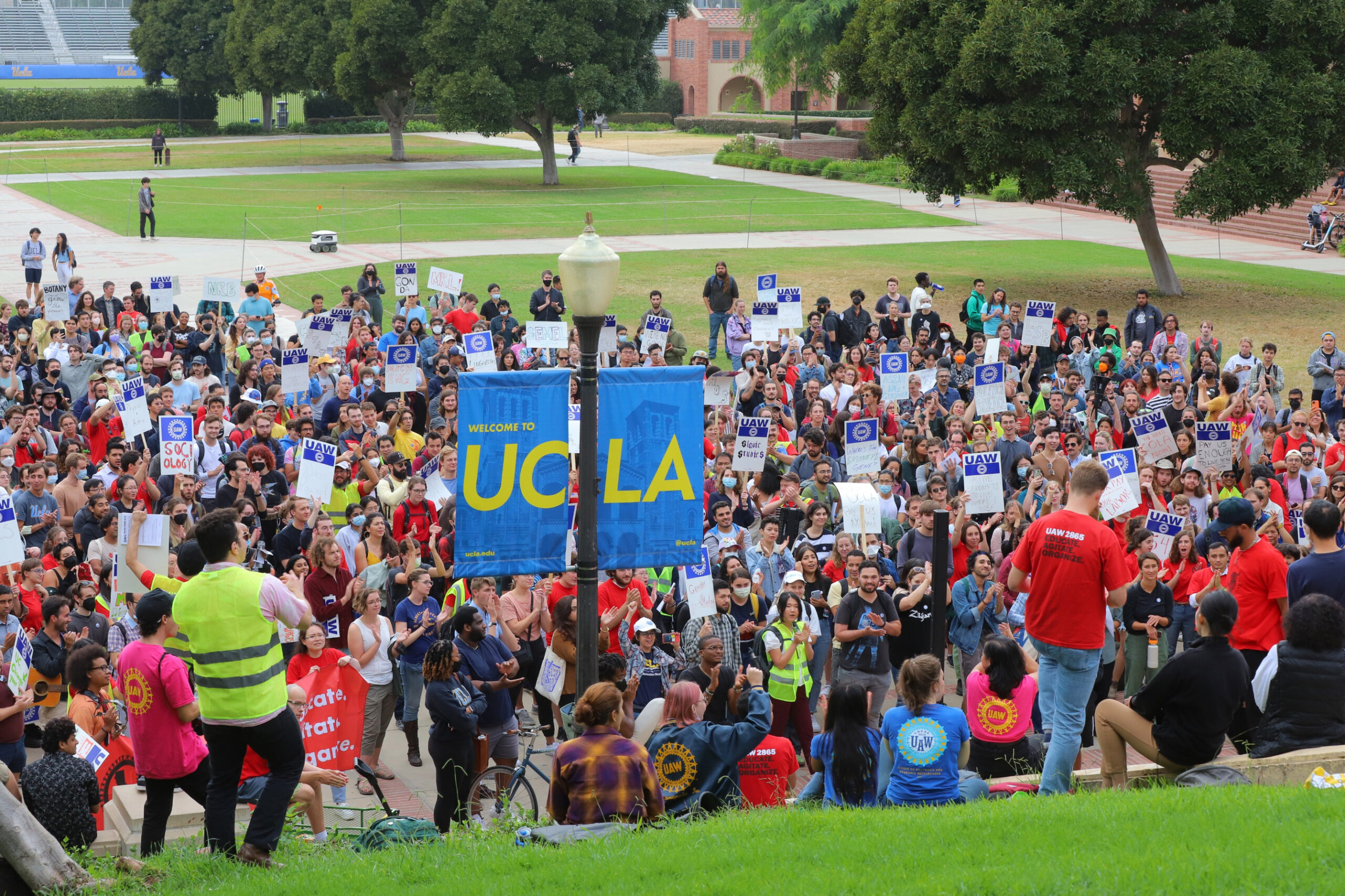Tens of thousands of academic workers across the University of California system voted to authorize a potential strike, threatening to throw a wrench in the operations of 10 major universities across the state and the Lawrence Berkeley National Laboratory.
The United Auto Workers (UAW), which represents some 48,000 postdocs, teacher’s assistants, academic student employees and student researchers across four bargaining units, called for a strike vote last month alleging unfair labor practices.
UAW has filed a number of complaints to the California Public Employment Relations Board alleging unfair practices by the University of California, like failing to respond to requests for information, trying to circumvent the established bargaining process and tearing down union posters in the run-up to the strike vote.
The vote, which took place over the last week, required a two-third majority for approval and passed overwhelmingly with 97% of 36,558 votes cast in favor of approving the power to strike. The union touted the vote as the largest of its kind among academic workers in the country.
Bargaining units now have the ability to call a strike as soon as Nov. 14 if circumstances justify it. Leaders will be meeting this week to determine the best path forward for a labor stoppage if the university “fails to bargain in good faith,” said Melissa Mendez, a member of the bargaining team and a student researcher at UCSF.
Last year, around 17,000 student researchers at the university system successfully won recognition as a union after their own successful strike authorization vote. The bargaining unit is currently in negotiations for its first contract.
Mendez characterized the pandemic as a “breaking point” that highlighted long-standing inequities in academia.
“We’ve worked together to build this democratic mandate and communicate to the UC that we’re not going to back down and we will not be denied dignity as workers,” Mendez said. “Why we’re in this situation to begin with is unfair working conditions that are detrimental to the research we do that also brings in billions in funding to UC every year.”
While individual proposals differ between the bargaining groups, one common thread is demands for higher compensation in parity with cost-of-living increases and inflation.
Matthew Ryan, a graduate student at UCSF researching prostate cancer and a bargaining team member for the union, said his current salary of $44,000 is not enough to survive in the city. The Living Wage calculator at the Massachusetts Institute of Technology quantified a living wage in San Francisco at around $64,000 annually.
In order to make ends meet, Ryan said he’s had to take on an additional part-time job and stack on credit card debt and emergency loans to pay for medical bills. University-owned housing proved to be too expensive, and he was forced to move out and find a cheaper place to live, Ryan said.
“We’re still fighting for a living wage at this university, and on average, we have to pay at least 50% of our salary on housing,” Ryan said. “The minimum pay the UC is offering is $28,000, which doesn’t pay rent across any of the campuses in California.”
Another common demand is an increase in subsidized transit benefits to help academic workers travel to and from work and help the university system meet its emissions goals.
An open-ended and wide-ranging strike could mean difficulties in the ability to staff classes and labs across the campuses, which could be exacerbated during final exams. The work stoppage could include 9,700 workers across UC Berkeley and the national laboratory, as well as more than 2,700 workers at UCSF.
“Ultimately the UC works because we do; if we do not, the UC will not,” Mendez said.
For its part, a UC representative said in a statement that “the University has provided fair responses to UAW on priority issues of concern to all four bargaining units, including in areas of fair pay, a respectful work environment, and housing.”
“We are committed to continuing to negotiate in good faith and reaching full agreements as soon as possible,” a university spokesman said in a statement.
One area of agreement the two groups have reached is stronger protections against bullying, abusive conduct, discrimination and harassment.
The UC said in the event of a strike, “all campuses will be prepared to ensure continuity of instruction and research.”
However, Ryan said normal operations would be largely impossible in the face of tens of thousands on picket lines.
“We do nearly all the research and the vast majority of the teaching, research labs and classrooms will not and cannot function without our labor, and we will shut it down if necessary,” Ryan said.
